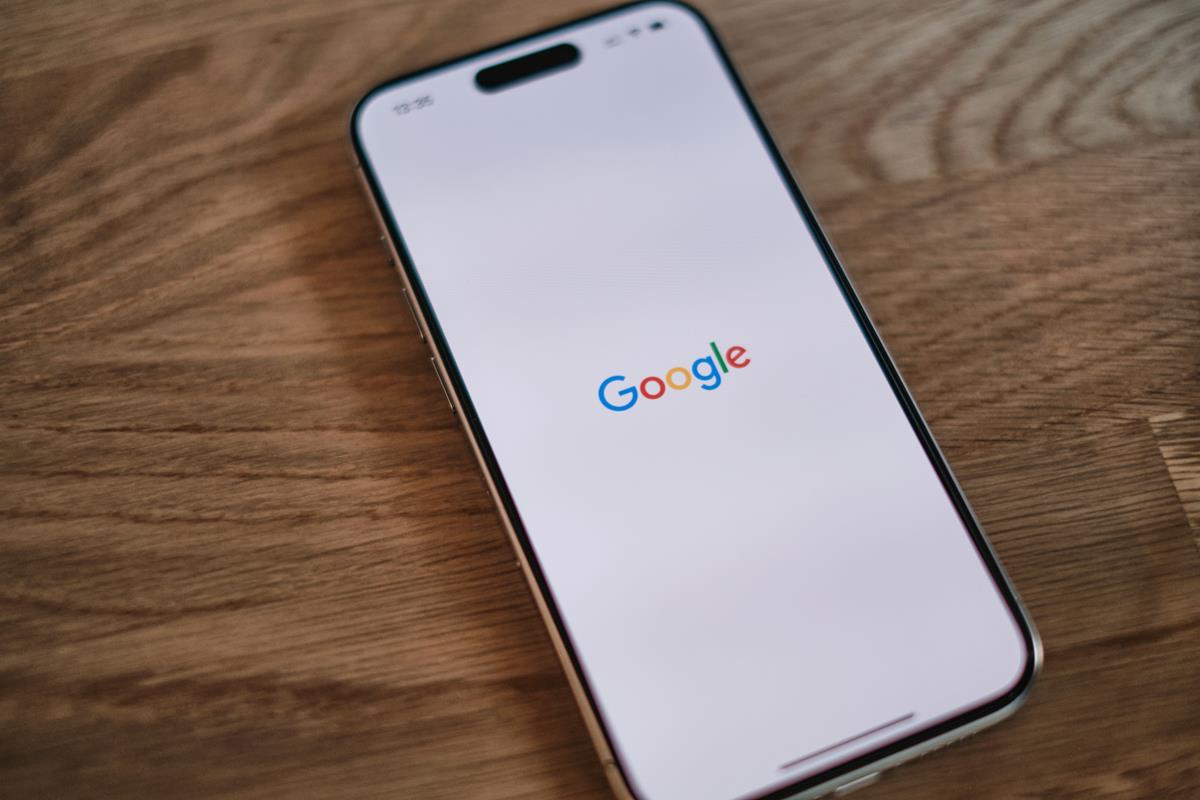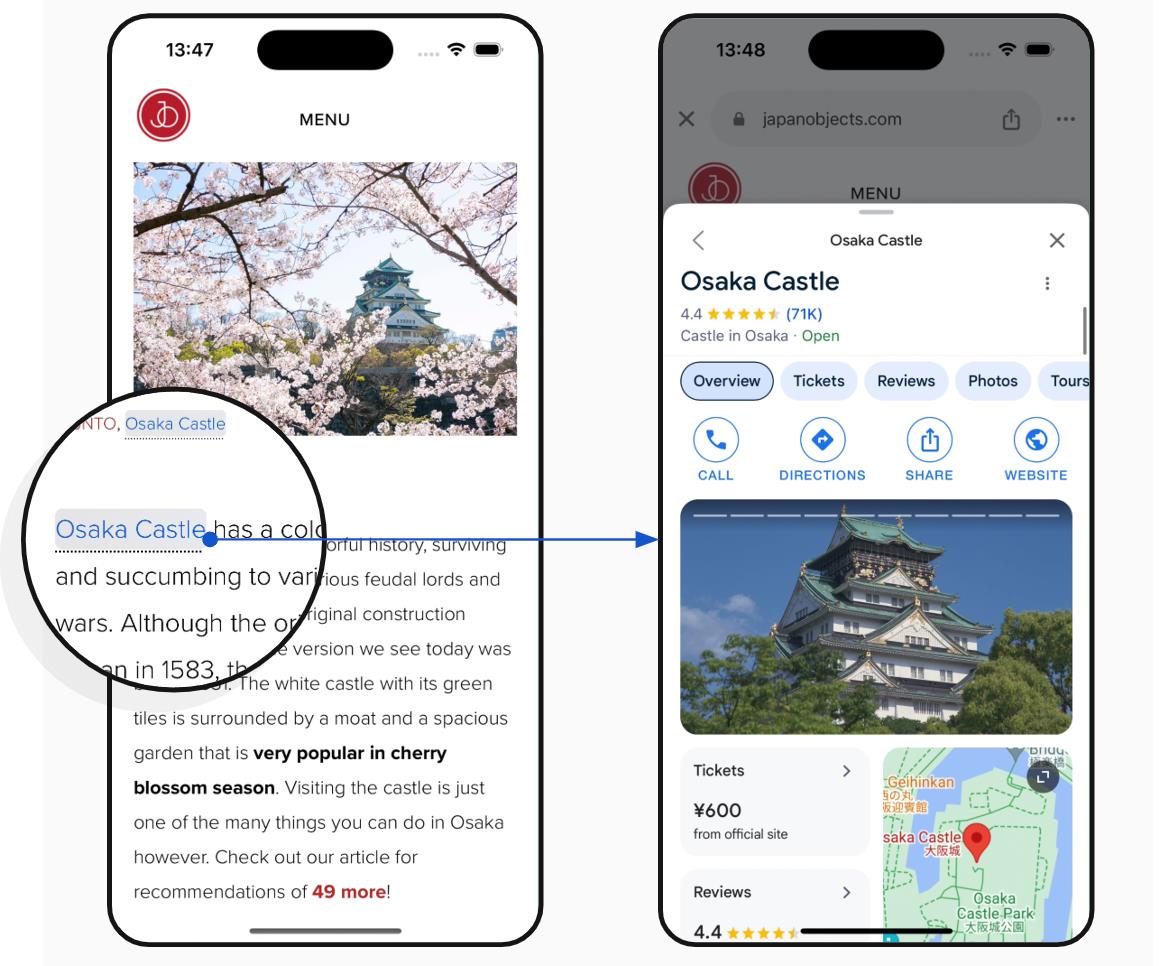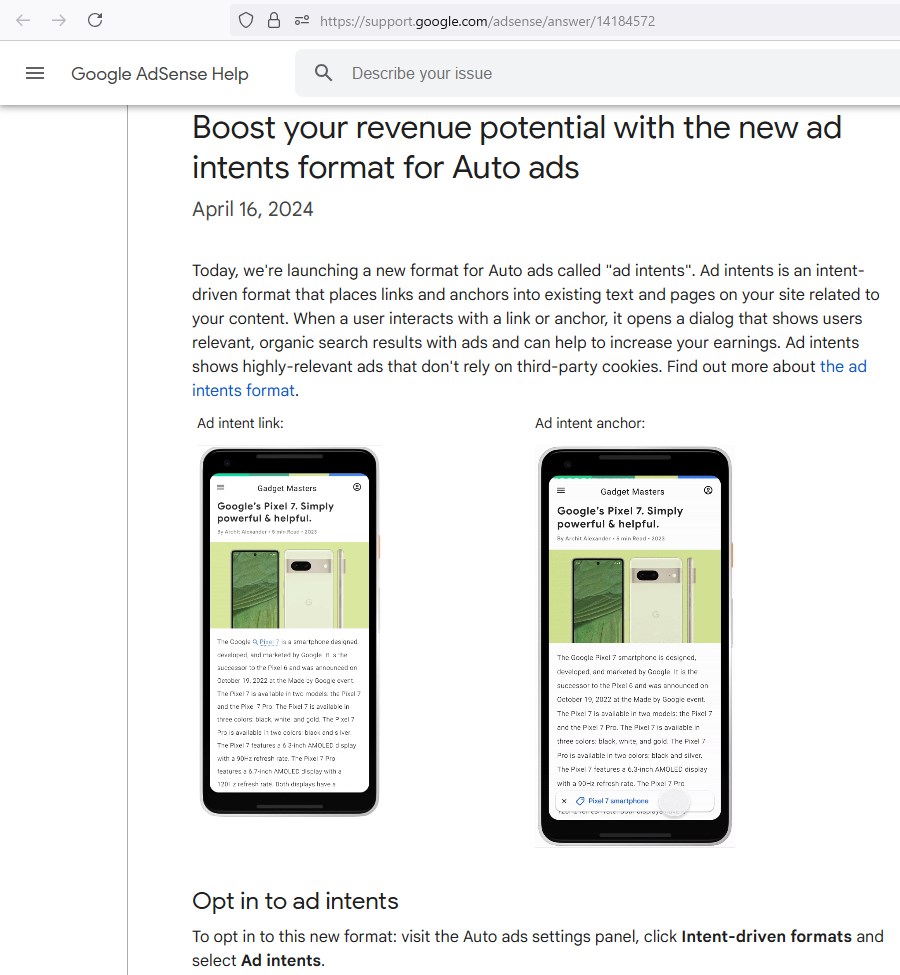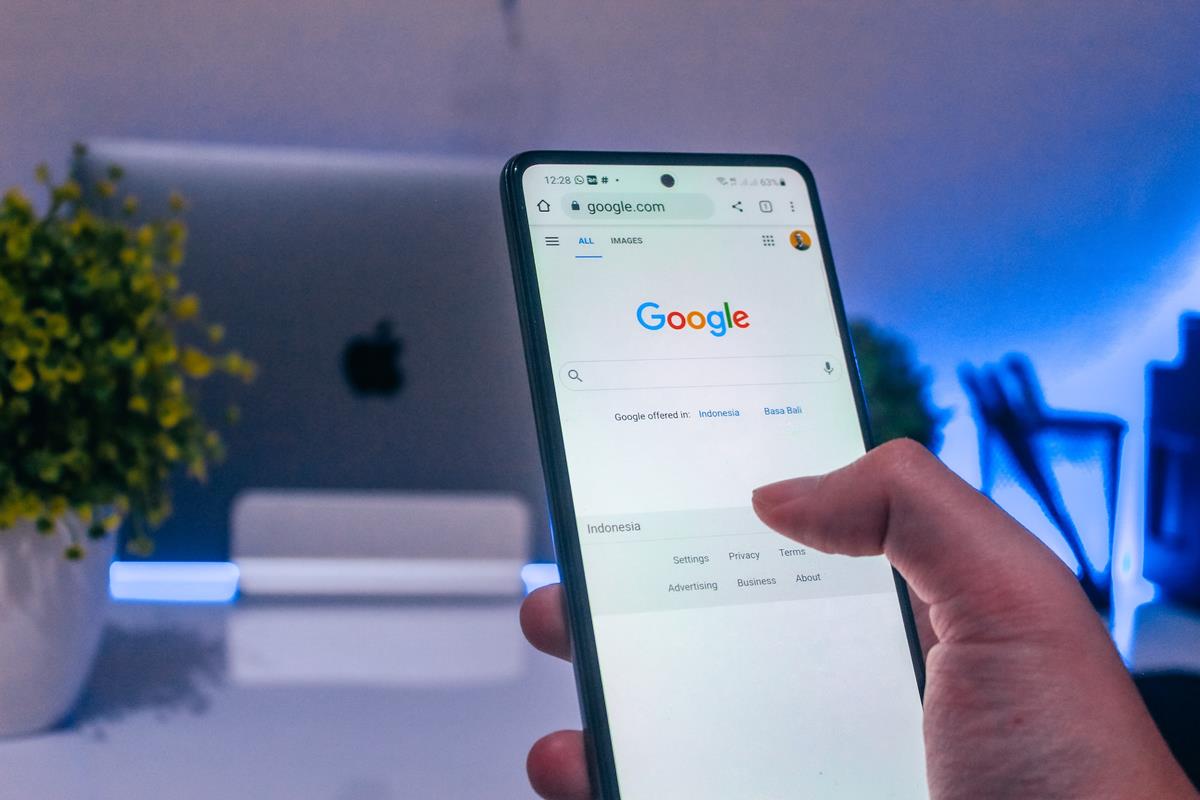Google's iOS app is injecting Search links on websites

Google has added a new kind of ad that will appear as clickable texts on third-party websites. The feature, if you can call it that, is named Page Annotation.
Google's Page Annotations will inject search links on web pages
Page Annotations are currently only available via the Google app on iOS. The company says that it will "extract interesting information from Google Knowledge Graph entities and highlight them in line". A user clicking on the text ad will be shown more information about people, places or things without leaving the site they are on.
The change was announced on the Google Search community forums, was spotted by SERoundTable. Here's a screenshot of how the ads will appear on a web page.

Certain words are highlighted, i.e. underlined like a regular link, and when interacted with, opens a pop-up with an ad relevant to the text that was annotated.
Page Annotations may sound familiar, here's why. Google had announced a new ad format called Ad Intents in Google AdSense earlier this year. This design added ads in the form of clickable links to text content on webpages. A user who clicked on the link would be taken to a page on Google Search. These ads/links did not depend on third-party cookies. One important part to note here is that this ad format was an opt-in feature, i.e. it was not enabled by default, and publishers who were interested needed to participate willingly in the program.

The new ad experience, aka Page Annotations, is an opt-out feature. Publishers need to opt out of the experience by submitting a form on Google Docs. You will need to include all types of domains you want to opt out of, such as www and non-www, http and https, and subdomains. And, the process can take up to 30 days to be approved.
This seems like a pretty bad idea considering that Google is already being investigated as part of the antitrust lawsuit against the U.S. Department for Justice, in which a federal judge found the search giant guilty for building and maintaining an illegal monopoly. Its advertising business is also being scrutinized. The DoJ has recommended a remedy which could have a big impact, as Google could be forced to sell Chrome to a third party.
9to5Google reports that the new Search experience is available via the Google app on iOS. I couldn't find a way to get those ads to show up in the app, even on the very page that Google featured in its announcement. I think it is fair to say that the feature may be rolling out slowly to users.
Both ad experiences are bad from a reader's perspective. As a reader, you would expect links on web pages to be relevant to the context, which either takes you to an internal web page (on the same website). Now, instead of this, it opens an ad in a pop-up.
Displaying ads on Google pages is fine, the company has every right to manage its own content. But placing ads on third-party websites is unethical. Think about it, who is the reader going to blame for such annoyances? Google, or the website? It is very likely that many admins may not be aware of what's happening, and if they hadn't opted out of Page Annotations, their web traffic could take a hit because visitors were annoyed by the ads.
What do you think about Page Annotations?






















To answer “What do you think about Page Annotations?”
Fuck Google.
@Ashwin, will I be able to block this on mobile FFox with NoScript & uBlock Origin?
If so, I will probably only use FFox &/or Opera on my phone.
Keep stepping on your Richard, Google!
These ads are only injected via the Google app on iOS, browsers do not seem to be affected, not yet anyway. So you should be good.
Guess it’s pretty easy to figure out what most people are going to think of this idea. Simply put, it’s a bad one. Hope it doesn’t show up on computers, but if it did I expect that somebody would be able to write a program which would disable it. On Android phones though, since Android is a Google product, you can about guess that it would be pretty much impossible to disable if they wanted to make it that way.
My KaiOS (which I loath) flip phone is probably immune to it.